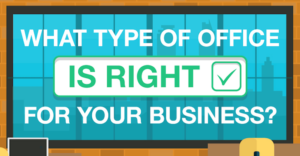Summary. Building an employer brand means you can control and positively impact your company’s reputation. A compelling employer brand can attract a larger and more curated talent pool, bringing more stakeholders and loyal customers to your business.
When you hear the word branding, you may think of external marketing and the positive impact you wish to make on customers. However, branding can apply to the company as an employer as well. Building a positive employer brand attracts better talent and can positively impact retention rates and overall productivity.
In a competitive recruiting landscape, having a compelling employer brand can directly affect how successful you are in attracting and retaining your talent. In tight-knit industries, this is especially important in maintaining a positive company identity that knowledgeable professionals want to work for.
Key Takeaways:
-
According to a recent Glassdoor survey, 69% of respondents think it’s extremely or very important that their employer brand is one they are proud to support.
-
Storytelling is a major part of employer branding, but the most important piece of the puzzle is that it’s implemented and practiced by everyone in the business.
-
By creating and implementing an employer branding strategy, you can better dictate how potential candidates view your business.
What Is Employer Branding?
Employer branding is foundational in attracting and retaining a great internal team. Positive employer branding can boost morale and influence the public’s perception of your company. According to a recent Glassdoor survey, 69% of respondents think it’s extremely or very important that their employer brand is one they are proud to support.
Employee branding can be defined as the reputation you have as an employee among your employees, potential employees, and within your industry. This includes how you market your company to job candidates and your existing internal employees. A key part of employer branding is defining and practicing your company’s core values.
Leadership and culture have a direct impact on your employer’s branding. This should start at the top and be felt by all employees so that when asked, they provide a positive opinion of their working experience. Storytelling is a major part of employer branding, but the most important piece of the puzzle is that it’s implemented and practiced by everyone in the business.
The Importance of Employer Branding
In today’s recruiting market, job seekers have access to a number of different tools to give them information about your business. Before applying for a job, many candidates will do research before considering throwing their hat in the ring. If they stumble across something negative or concerning about your company, they may choose not to apply.
By creating and implementing an employer branding strategy, you can better dictate how potential candidates view your business. Your strategy should include their hiring process experience and retention strategies. Most importantly, it should outline your employer’s value proposition and clearly define how your company can benefit an applying candidate.
How to build Your Employer Brand
Building an employer brand doesn’t need to be complicated. Chances are you have the answers to many of these considerations already, but it is important to define them to put your branding strategy into practice. Here are some steps to take to build your employer brand.
-
Define your vision, mission, and values. Your company should have clear business objectives as well as a vision to strive for, a mission statement, and values to live by. These three things can help identify your company’s value proposition and help job candidates decide if they would be a good addition to your team.
-
Analyze your company culture. It’s important to ensure you speak directly with your employees about company culture. Understand what they love about your company and what they might like to change. Getting a handle on this can help identify weaknesses and better identify your strengths to highlight as part of your employer brand.
-
Decide on the story you want to tell. Building an effective employer brand starts with connecting with candidates on an emotional level. Storytelling is an incredibly effective way to do this and can differentiate your company from competitors. Consider using written or visual brand storytelling to connect with candidates on a personal level.
-
Establish employee advocacy. The best way to build an employer brand is by using your employees as advocates. Offering incentives for candidate referrals or promoting branding information is a great way to get them involved. But remember, your employees must feel a connection to your company before they’re willing to be advocates.
-
Use metrics. When you track your employer’s branding initiatives, you’ll better understand what parts of your branding are working and what parts aren’t. Your metrics may differ depending on your industry, but you should track the quality of your hires, employee satisfaction, and employee referrals, among other things.
-
Perfect your hiring process. Hiring procedures should be fair, consistent, and transparent. Your candidates should find your process easy to navigate and a positive experience even if they don’t get the job. Ensuring these things will help your business maintain a positive employer brand in the marketplace.
-
Use social media. Social media is a powerful tool for brand marketing, but it can be used for employer brand promotion as well. Highlight things like company culture, philanthropy, or any positive impact you have in your field or community. These things will improve the public’s perception of your business.
Even if you’re a small company, it’s important to invest time and resources into improving or maintaining a positive employer brand. This will have a long-lasting impact on the type of talent you attract, which ultimately impacts the success of your business. Do the right thing. In the end, even the best branding won’t make up for poor culture or unsatisfied employees.
How to Build Your Employer Brand FAQ
-
Who should be responsible for employer branding?
Depending on how your business is structured, employer branding should be the responsibility of the leadership team. Deliverables and strategy execution should be delegated to human resources and marketing teams, who have the skills to deliver on certain elements of the overall strategy.
Employer branding should always come from the leadership teams, as effective employer branding is only as good as how it’s implemented at the top. Involving the company’s CEO is preferable, but it can also be handled by others in the C-Suite or leadership positions.
-
What is the goal of employer branding?
Employer branding has a direct impact on the type of talent your business attracts. Creating and implementing employer branding will give your business a better handle on how your company is perceived by potential hires and has the potential to positively impact the dialogue surrounding your company.
Employer branding also has an impact on overall employee retention. By putting a deeper focus on your company’s branding, you will need to check in on your employees and the company culture and work to address any weaknesses.
-
How do you build a strong employer branding strategy?
Building a strong employer brand strategy starts with clearly defining your company’s vision, mission statement, and values. Everyone on your leadership team should agree on these three things, and they should be widely communicated to your entire company. The most important consideration is to ensure they are being followed.
Strong employer branding strategy should then be delegated to the human resources or marketing teams, who can take essential deliverables and put them into practice.
References
- Management
- Guide to Customer Retention
- Management Abbreviations
- Innovation in the Workplace
- Zappos Hiring Case Study
- Why a Clean Workspace Is Good for Business
- Tips for HR Magement Success
- How to Achieve Better Results With Your Team
- Working With a New Client
- What Is Market Mapping
- Managing Unprofessional Online Behavior
- Morale-Boosting Activities
- Understanding Your Team
- Signs of a Bad Hire
- How to Spot Leadership Potential
- Quality Management Implementation
- Goal Setting Tips for Business Owners
- How To Create An Effective HR Business Plan
- How To Avoid Nepotism
- Safeguarding Procedures For HR Managers
- How To Create A Productive Workplace
- The Power Of Strategic Partnerships
- Advice From Successful Business Leaders
- Why You Should Network
- How To Manage Up
- HR Titles
- Corporate Retreat Ideas
- What Is An Employee ID?
- What Is Employee Self-Service?
- The 4 Ps Of The Marketing Mix
- How To Be Flexible At Work
- What Is Greenwashing?
- What Does A Chamber Of Commerce Do For Businesses
- How To Write A Sales Introduction Email
- A Guide To The Critical Path Method
- What Is A Change Agent?
- How To Build Your Employer Brand
- How To Have Effective Meetings





